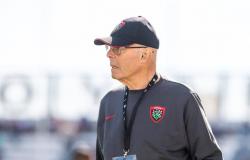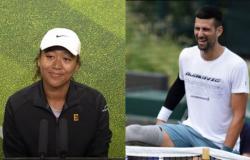A fairy tale. The first Moroccan, Maghreb, African, Arab, Muslim woman to stand on the podium at the Olympic Games, on August 8, 1984. The Moroccan flag flew in Los Angeles, filled with the pride of an entire people, amazed by this young girl who had entered the history of sport and women’s sport. A gold medal in the first women’s 400m hurdles in the history of the Olympic Games. This year, there were only 1,566 women among the 6,829 athletes competing!
The first Olympic Games date back to 8 centuries BC. BC, in Olympia, Greece, in honor of Zeus, considered the god of gods. Athletes prayed to him to win and made offerings to him after their success.
In 1896, French Baron Pierre de Coubertin initiated the first modern Olympic Games, in Athens, and founded the International Olympic Committee (IOC) which, to this day, is the governing organization of the Olympic movement.
But women were excluded, on the grounds that they had neither strength nor endurance, that their bodies would become masculinized and that their uterus could fall and cause sterility. In 1901, Pierre de Coubertin wrote: “The role of the woman remains what it has always been: she is above all the man’s companion, the future mother of the family, and must be raised with a view to this immutable future.»
1912, female mobilization: 2% of athletes were women, for only two disciplines. Response from Mr. De Coubertin: the woman is “uninteresting, unsightly…» Then, in 1928: «It was against my will that they were admitted to a growing number of tests“For him, the real Olympic hero is the male. The role of women is to crown the winners.
It was not until 2007 that the Olympic Charter made the presence of women in sport compulsory. The 2024 Olympics ensure parity. De Coubertin, for whom women do not have to make a spectacle of themselves, must be writhing in his grave!
Nawal El Moutawakel is one of the women who have contributed to promoting women’s sports competition. She was born into a background that she describes as modest: a father and mother who were bankers and 5 children to raise. To the young people she meets, she instills the idea that success is possible for those who make an effort, are perseverant and believe in themselves.
Certain blessed encounters change the course of a life. Nawal made one that will determine her destiny as an athlete. “In my family, sport was dominant. A student at Al Khansa High School, my mother played volleyball. My father was a judoka. Enrolling their children in a sports club was obvious to them.»
While teenagers her age were looking for outings and other fun, Nawal had only one activity: running.
«In 1978-79, every Saturday and Sunday, I jumped the wall of the La Casablancaise stadium to train, clandestinely. Without a coach, I ran in an anarchic way, without technicality.
A man was watching me, astonished by this frail, small teenager, who was training tenaciously. He was giving me signs to improve my running. I also met him when I ran at the Arab League Park, where he was accompanied by his wife and children.
One day, he approached me to tell me that I had great potential. He started giving me valuable advice. It was Jean-François Coquand, an Arabic teacher at Lycée Lyautey and a great athletics fan. He told me that he wanted to join a club to pursue his passion. I recommended my club, the CMC, to him. He joined and obtained his first coaching license at the CMC..»
This meeting marks the birth of a deep friendship which unites, to this day, Nawal El Moutawakel to this man and his wife, Hélène: “He became my friend, my confidant, my coach. His family is very dear to me.»
Nawal’s attachment to sports was causing his grades to drop and worrying his parents. “The Coquands supervised my education, which reassured my parents who always encouraged me.»
The coach convinces Nawal to specialize in the 400 meter hurdles. In 1982, she won 3 gold medals at the African Championships in Cairo. In 1984, 8 months before the Los Angeles Olympic Games, she moved to the United States for her studies and for her sporting career.
One day, she learns that her father has died several months ago. Her family wanted to protect her from the tragedy that would probably have ended her promising career. “Bruised, I decided to give up everything. But I continued, thanks to the support of those around me. My father was a good man, very open-minded. His dream was to see me on the Olympic podium. This was my motivation. I dedicated my Olympic medal to my parents, Allah yarhamhoum.»
Nawal was Secretary of State to the Minister of Social Affairs in charge of Youth and Sports (1997), Minister of Youth and Sports (2007) and Member of Parliament in 2016. She has received numerous prestigious distinctions from Morocco and other countries and organizations.
The Moroccan Sports and Development Association, which she chairs, carries out major operations, both for the promotion of sport, including women’s sport, and at the charitable level.
In 2012, she was elected member of the Executive Board and Vice-President of the International Olympic Committee (IOC) and Chair of the Coordination Commission for the Rio 2016 Olympic Games. In 2023, she was re-elected as an IOC member.
Attending your own consecration is a privilege. Most often, this happens posthumously, which is regrettable, because the person leaves without having been gratified, without knowing that their courage and commitment have been recognized, and how much they have been loved and appreciated. During the inauguration of the sports complex bearing his name, Nawal El Moutawakel found out! A moment of great emotion.
Par Soumaya Naamane Guessous
06/28/2024 at 11:05 a.m.






